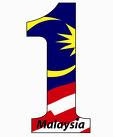The Malaysia Model
By NAJIB RAZAK FROM THE WALL STREET JOURNAL ASIA
As Group of 20 leaders prepare to meet in London early next month, they face an unprecedented challenge. The global economy is likely to shrink this year for the first time since the Second World War. The World Bank predicts that during 2009 world trade is likely to record its largest decline in 80 years, with the sharpest losses in East Asia.
My country, Malaysia, is one of the most trade-based economies in the world. Our ratio of foreign trade to gross domestic product exceeds 200%, the highest of any economy except Hong Kong and Singapore. We have prospered by recognizing the power of trade and the value of markets. But this embrace has been pragmatic, not ideological. It has always been complemented by our recognition that government, too, has a critical role to play.
The global economic crisis has demonstrated anew that relying on the behavior of markets alone is insufficient to promote stable, long-term economic development. When economic crises hit, one has a choice. Those steering national economies can either stand aside, or use public capital to take the place of private capital that has gone into hiding, thereby investing in the country's human capital.
In the short term, this kind of action provides jobs and opportunity. In the long run, it provides the foundations for recovery.
Stimulus packages should not be about resorting to popular policies or handing out cash. And they should not target one group or area, but benefit the whole country. It is about achieving maximum impact.
With the global economic crisis still unfolding, we have focused on boosting investments and credit flows while providing government guarantees and infrastructure expansion. Foreign investment in Malaysia is expected to fall by 50% to 26 billion ringgit ($7 billion) in 2009. That means we must either respond domestically, or allow our country to waste precious years during which we should be working to build a better society.
That is why on Nov. 4 last year, I announced a first stimulus package of seven billion ringgit. And why on March 10, I announced a historic second stimulus and mini-budget of 60 billion ringgit. Accounting for 9% of Malaysia's gross domestic product, the 60 billion ringgit alone is the biggest stimulus package in our history.
Some may say this is too much. But with our low foreign debt, large international reserves and ample banking sector liquidity, we have the capacity to fund it. Given the magnitude of the still evolving global crisis, I am convinced the risk isn't that we do too much, but that we don't do enough.
We know that ultimately the world will recover, and normal trade levels will resume. When it does, we want Malaysia to be best positioned to take advantage of that recovery. That is why we have decided to balance short-term requirements with building for the future. The mini-budget is designed to provide a quarter of the stimulus funds as a boost to meet people's immediate needs, with the remaining 75% for medium- and long-term development goals.
It is vital for countries to remain competitive. Malaysia's corporate tax of 25% is comparable with others in the region. However, taking into account the many incentives offered to investors, the country's effective tax rate is between 3% and 7%.
Efficient implementation is vital in the success of any country's stimulus package. We have set up a technical committee to monitor the implementation of ours. It will meet regularly and report to a steering committee that I will personally chair. I will then report to the ultimate beneficiaries of the effort, the Malaysian people. They are the appropriate judges of the mini-budget's success.
In Malaysia we learned fundamental lessons from the 1997 financial crisis. Our financial sector and corporations realigned as a result. We are fortunate today to have good national infrastructure, technical know-how, a diversified economy and a quality workforce. Overall, post-1997 we are far better placed to weather this new storm.
Yet in the long run, further transformation of the Malaysian economy is needed. We will use the current downturn to forge a new economic model that puts knowledge first. We will invest in education and technology, further strengthening Malaysia's capacity to lead in information technologies, renewable energy and emerging sectors of the new economy.
Our goal is to harness the talent, energy and drive of all of our people. We will be aided in our efforts to provide lasting prosperity by working to spread mutual tolerance and respect between genders, cultures, races, religions and nations. We will champion inclusiveness not just because it is a foundation for political stability and economic growth, but because it is right.
As a nation in a hurry, with millions dependent on its development and progress, Malaysia is picking itself up and moving on. We are remaking Malaysia once again.
When G-20 leaders meet next month, I hope others will take similar positions. It is time to turn words into deeds. The world's economic recovery will depend on concerted and coordinated efforts by economies large and small, and we in Malaysia will play our part
Mr. Najib is deputy prime minister and finance minister of Malaysia.
Keseruan dan Keuntungan Berlimpah dari Bermain Slot Gacor Online
-
Keseruan dan Keuntungan Berlimpah dari Bermain Slot Gacor Online – Di era
dimana teknologi memudahkan segala aspek kehidupan, bermain judi slot kini
tak ...
2 years ago



















No comments:
Post a Comment